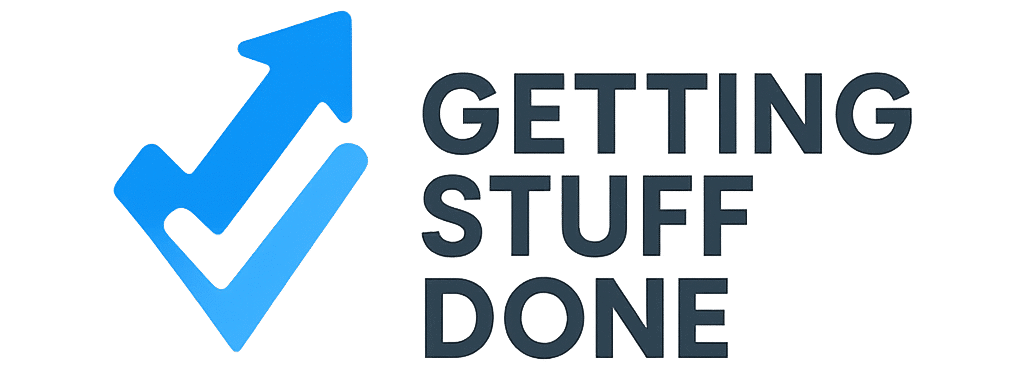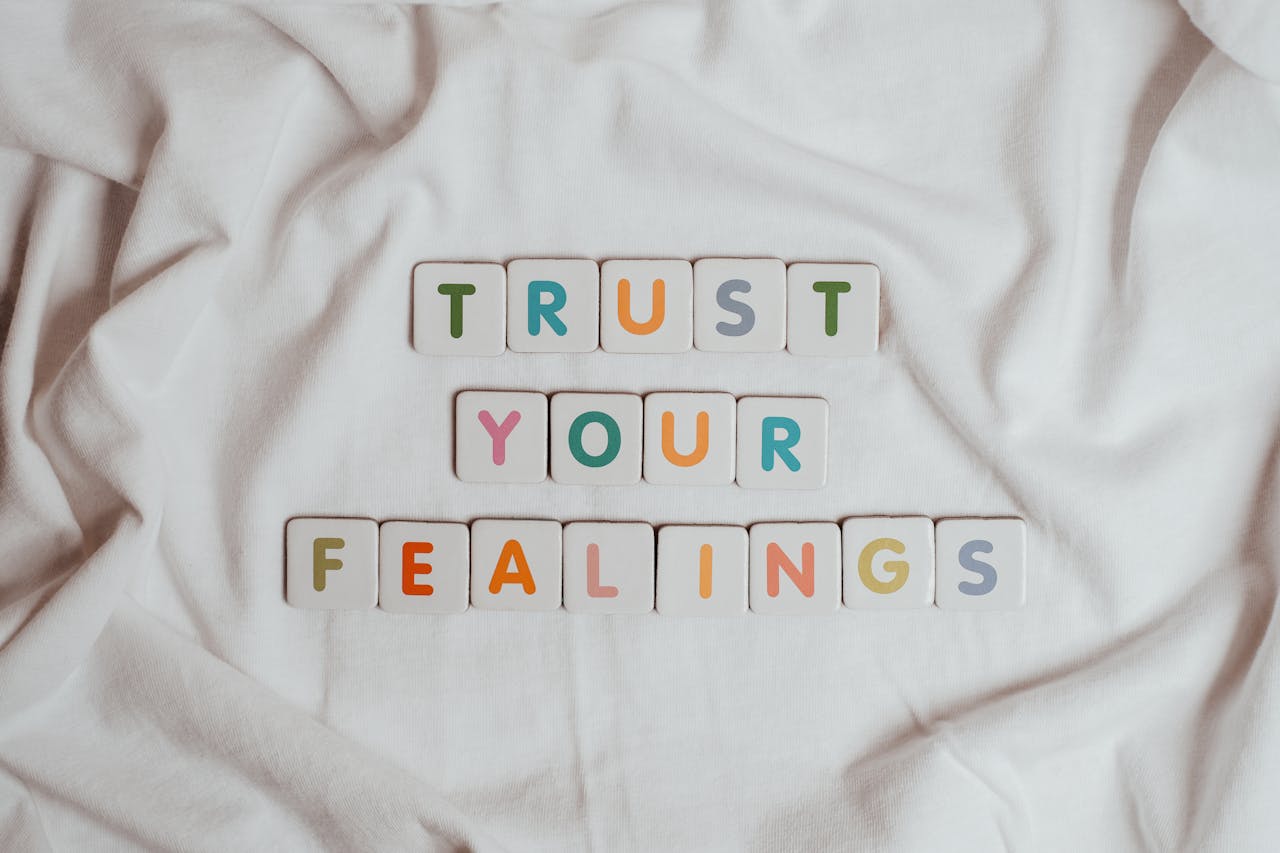Trusting yourself is like having your coach living inside your head, pushing you to make moves and chase your dreams. When you start trusting yourself, it’s magic.
You get this super boost in personal growth and find confidence you never knew you had. It’s all connected—self-trust, self-esteem, and confidence—like some kind of power trio! It’s wild how much better decisions we make when we’re anchored in self-trust.
But hey, when self-trust is absent, everything feels shaky. Suddenly, decisions become these big scary monsters because without trust in ourselves, every choice seems like a shot in the dark.
That’s when self-doubt creeps in, making us second guess every move like we’re playing a bad game of chess. Not having that trust can slow down personal progress faster than anything else.
Developing self-trust isn’t some one-time thing or a magic trick you pull off overnight. It’s this ongoing journey of giving yourself a break, listening to your gut, and believing your heart knows the way. When you make self-trust a priority, every step forward feels just a bit safer, and life’s uncertainties become a tad less daunting.
Trusting Yourself — Understanding the Barriers to Self-Trust
“Whoever is careless with the truth in small matters cannot be trusted with important matters.”
Building self-trust sounds great, right? But let’s be real—it’s not all smooth sailing. Because of prior conditioning, trusting yourself is not our default programming.
There are some serious roadblocks along the way, and they often come dressed up as fears and doubts. It’s those little voices in your head whispering that you’ll mess up or that you’re just not cut out for stuff. They’re loud, persistent, and feel way too convincing at times.
A lot of this self-doubt has deep roots. Maybe it’s that one time something didn’t pan out, and since then, it’s been like a shadow on your shoulder, constantly reminding you of what went wrong. Past failures can really have a way of leaving a mark, lurking around even when you thought you’d moved on.
Then there’s the negativity that seems to float around us all the time, whether it’s from people around us or that endless scroll through social media. It’s like every other post is about how perfect someone else’s life is, and that starts shaping how we see ourselves, often in not-so-right ways.
Recognizing these barriers is the first step. Once you’re aware of what’s holding you back, it gets easier to call it out and tackle it head-on. It’s about filtering the noise, shaking off the weight of past missteps, and tuning back into your own frequency. The more you acknowledge what’s tripping you up, the clearer the path becomes to rebuilding that trust in yourself.
Cultivating Self-Awareness
“I do not know what I may appear to the world, but to myself I seem to have been only like a boy playing on the seashore, and diverting myself in now and then finding a smoother pebble or a prettier shell than ordinary, whilst the great ocean of truth lay all undiscovered before me.” — Isaac Newton —
Getting in tune with yourself is crucial. It’s the compass that points you towards stronger self-trust. When you really get to know yourself, understanding why you do what you do becomes a natural part of who you are.
Mindfulness is your go-to tool here. It’s like hitting the pause button in a hectic day—giving a moment to check in and see what’s genuinely happening inside. It’s that moment to breathe and reflect instead of rushing forward without a clue why. Mindfulness practices can help you tap into your intuition, that gut feeling telling you what’s right or wrong.
Your values and beliefs form the core of who you are. They’re the guiding stars in your life’s journey. Getting clear on these helps in aligning your actions with what’s truly important to you, making trust come naturally. You start seeing how every choice lines up with your core beliefs, giving you that extra push to trust your instincts.
Building this awareness isn’t just about heavy introspection. It’s more about checking in with yourself regularly, noticing patterns in your thoughts and actions, and making subtle adjustments as you go. Each little tweak solidifies the trust brick by brick, creating a solid foundation for everything else in life.
Trusting Yourself — Building Confidence Through Small Wins
“Trust is built with consistency.” — Lincoln Chafee —
Confidence doesn’t magically appear out of thin air. It’s built through a series of small victories that prove to yourself you’ve got this. Setting goals that you know you can achieve, even if they seem tiny at first, is the start. It’s all about building momentum with these little achievements, giving you a sense of accomplishment. Each win pumps up your confidence bit by bit.
It’s essential to turn these small wins into a habit. Celebrating these successes, big or small, matters more than you might think. Take a moment to give yourself some credit. Maybe it’s as simple as a fist pump or a little treat, whatever works to acknowledge your progress.
But let’s be real, not every attempt is going to hit the bullseye. Learning from setbacks plays a huge role in building trust too. Analyzing what didn’t work and figuring out how to tweak it next time turns stumbles into stepping stones.
Tracking progress is another biggie. Keeping tabs on how far you’ve come doesn’t just give you a clear picture of your growth—it also reinforces that if you did it once, you can do it again. It’s a confidence builder, making trusting yourself that much easier moving forward.
Overcoming Fear and Embracing Vulnerability
“Always do what you are afraid to do.” — Ralph Waldo Emerson —
Fear can feel like a heavy anchor, holding you back from trusting your own instincts. Often, it’s this fear of failure—the what-ifs, the unknowns—that clouds your judgment. Embracing vulnerability is about loosening that anchor, letting yourself explore new territories without the weight of self-doubt.
It’s a game-changer when you start accepting imperfections. Nobody’s perfect, and that’s perfectly okay! When you allow yourself room to make mistakes, you also give yourself the freedom to grow. Each misstep is another piece of wisdom, offering insights you’d have missed if you hadn’t dared to take the leap.
Creating an environment where it’s safe to be vulnerable helps too. Surround yourself with supportive people who encourage growth rather than sow seeds of doubt. Having a circle that’s got your back makes it easier to face fears head-on, knowing you’ve got people cheering on your progress.
Taking these steps is like flexing a new muscle—each bit of trust you build strengthens your resolve and makes those fears seem not so scary after all. The sea of uncertainty rocks a little less when you learn to ride the waves instead of fearing the tide.
Trusting Yourself — The Role of Self-compassion in Enhancing Trust
“My mission in life is not merely to survive, but to thrive; and to do so with some passion, some compassion, some humor, and some style.” — Maya Angelou —
Being kind to yourself isn’t just a nice-to-have; it’s a building block for self-trust. Self-compassion means giving yourself the same understanding and sympathy you’d offer a friend. It’s like saying, “Hey, it’s okay to stumble sometimes,” and then picking yourself up without harsh judgment.
Being hard on yourself after every slip-up only chips away at trust. Instead, practicing self-compassion helps create a safe space where you’re allowed to learn and grow. By treating yourself with kindness, you start to see each mistake as a lesson rather than a failure, reinforcing the belief that you’re capable and resilient.
There are plenty of ways to practice self-compassion. Try speaking positively to yourself, replacing the negative self-talk with something more supportive. Meditation or journaling might also help, offering the quiet reflection needed to process and understand your emotions without jumping to criticism.
Making self-kindness a habit boosts your recovery from setbacks, letting you bounce back faster. Each time you face challenges with compassion, you strengthen the trust you have in your ability to handle whatever life throws your way. It’s about building a relationship with yourself where support and encouragement are always available.
Applying Self-Trust in Everyday Life
“Trust yourself. Create the kind of self that you will be happy to live with all your life. Make the most of yourself by fanning the tiny, inner sparks of possibility into flames of achievement.” — Golda Meir —
Let’s talk about using self-trust where it really counts—in your day-to-day grind. Trusting yourself isn’t just for the big, life-altering decisions; it’s there for the little choices too. Balancing logic and intuition is key. It’s about weighing the facts while also listening to that inner voice, finding harmony between the two.
Your decisions impact your relationships and professional path. Trusting in your ability to choose and act wisely doesn’t just elevate your sense of self—it positively influences how others perceive and interact with you. Whether it’s making pivotal work choices or navigating social dynamics, self-trust sets you up to face these moments with clarity and confidence.
Self-trust is an ongoing journey, a rope you’re constantly weaving as you navigate life. The more you use it, the stronger it becomes. It’s about keeping that inner conversation alive, constantly checking in and adjusting as needed, ensuring that the trust you have in yourself is unwavering.
Nurturing self-trust isn’t a one-time event—it’s like a plant you water and care for regularly. With each experience, you’re building on a foundation that helps fend off doubts and keeps you moving forward. Life’s unpredictability throws curveballs, but when you’ve got your back, you’re equipped to handle them with grace and grit.
Trusting yourself is the foundation of living an authentic life with maximum contribution. Isn’t it about time to let go of all self-imposed limits?
Peace & Love,
Joseph William





Hey a great post you have here!
I enjoyed reading this post as I am trying to work on my self awareness, at the moment it is no where near where I want it to be.
This is an awesome post with so much detail to help us out and I really like the quotes, they provide more prove to the points.
Thanks again and have a great day!
Thanks for your thoughts and comments, Sariya. All the Best, Joseph